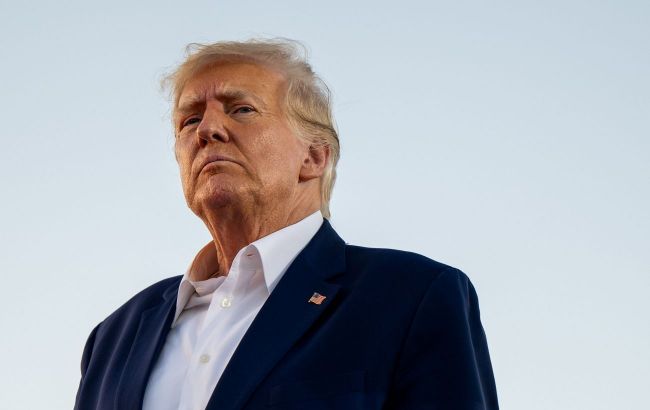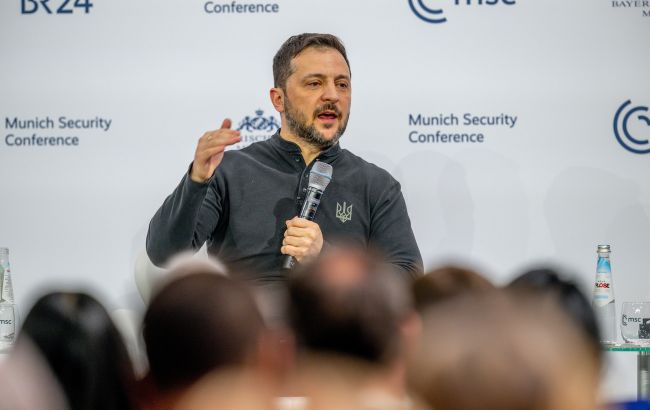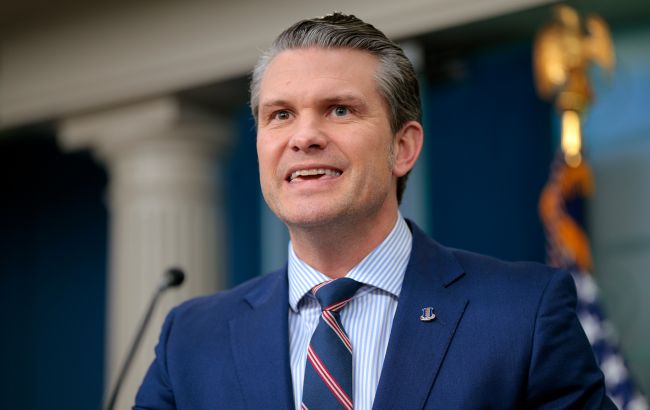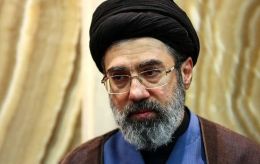In search of peace: Choice Trump has offered to Ukraine and EU
 Photo: Donald Trump (Getty Images)
Photo: Donald Trump (Getty Images)
Last week, a series of major international meetings took place in Europe, including the AI Summit in Paris, the NATO defense ministers' meeting, and the Munich Security Conference.
What are the key takeaways for Ukraine, and did these meetings bring an end to the war any closer?
Contents
- From behind closed doors to public diplomacy
- Trump’s diplomacy in action
- Separate talks with Ukraine and Russia
- Europe's support
From behind closed doors to public diplomacy
Over the past week, discussions on ending Russia’s war against Ukraine transitioned from behind-closed-door talks to public meetings. There were plenty of opportunities for all parties to engage, with several key events taking place in Europe: the AI Summit in Paris, an informal meeting of European foreign ministers in Paris, the NATO defense ministers' meeting in Brussels, and the Munich Security Conference.
Additionally, on February 12, US President Donald Trump spoke by phone with Russian President Vladimir Putin and Ukrainian President Volodymyr Zelenskyy. Trump in a post on TruthSocial, described his conversation with Putin as “lengthy and very productive.” Later, Trump informed Zelenskyy about the discussion with Putin. U.S. and Ukrainian leaders reportedly addressed various war-related issues.
At the same time, members of Trump's team made a series of statements about Ukraine and Russia, some of which contradicted each other. Perhaps the most controversial comments came from US Secretary of Defense Pete Hegseth. Speaking at the Ramstein meeting, he stated that Ukraine’s NATO membership was not a realistic option as a security guarantee to end the war. He also called Ukraine’s goal of restoring its pre-2014 borders - including Crimea- an “illusionary goal,” warning that pursuing it would only prolong the war.
Later, Hegseth walked back his remarks, clarifying that his statements did not mean Ukraine could never join NATO. However, the damage was done, leaving a bitter impression both in Kyiv and among European allies.
For many observers, statements from the US leadership felt like a cold shower - or even a shock - even though most of these points had already been leaked to the media through negotiation sources. The bluntness of Hegseth and other members of Trump's team played a significant role in how these remarks were received.
“I can tell you the problem with their approach - it just demonstrates terrible negotiating skills on the part of the president and his team. And that will be costly for Ukraine and the United States,” said Uriel Epstein, executive director of the US-based nonprofit Renew Democracy Initiative, in a comment to RBC-Ukraine.
According to Epstein, Trump’s team is narrowing the room for maneuvering.
“Yes, Ukraine was not going to be joining NATO tomorrow. Yes, it’s very likely that liberating all Ukrainian territory under Russian occupation would not be achievable in the near term. President Zelenskyy has implicitly acknowledged this himself. But that doesn’t mean these cards can’t be played as negotiating cards because the Russians clearly care about them,” Epstein emphasized.
Pete Hegseth (Photo: Getty Images)
"The US and Ukraine might have ultimately accepted some sort of temporary compromise, but not before they said, “We’re going to keep up the pressure on Crimea until you - Russia - accept Western security guarantees for unoccupied Ukraine,” or “We’re going to keep NATO membership on the table in exchange for some kind of concession from Russia," Epstein believes.
"Trump and Hegseth took that leverage and threw it out preemptively. I’m not sure where exactly that leaves Kyiv, but it is certainly in a weaker position as a result," he noted.
The Ukrainian leadership responded sharply to the statements from US officials but with a constructive tone. And that is a good sign.
Trump’s diplomacy in action
For now, Trump's team is following this tactic: speaking to Putin with respect while simultaneously threatening force.
US Vice President JD Vance told the Wall Street Journal that the US could impose tougher sanctions on Russia if it refuses a peace deal guaranteeing Ukraine’s long-term independence. According to him, "There are economic tools of leverage, there are of course military tools of leverage" the US could use against Putin. Earlier, Pete Hegseth told Breitbart News that he did not rule out providing Ukraine with nuclear weapons if Trump allowed it.
Regarding Ukraine, the approach seems similar, but with an adjustment for President Zelenskyy’s firm stance on ending the war. Axios provided details of his conversation with Trump. The US President told Zelenskyy that he understood his concerns about the conversation with Putin. Trump emphasized that it was unavoidable if he wanted his diplomatic efforts to succeed. "I need to talk to Putin in order to save Ukraine," Trump told Zelenskyy, according to Axios sources.
Another factor influencing Trump’s stance on Ukraine is rare earth metals and other practical assets Ukraine can offer the US. To prepare a deal in this area, US Treasury Secretary Scott Bessent visited Kyiv. The document was not signed in Munich, but work on it continues.
"I don’t think Trump is planning to negotiate without Ukraine. My arguments: right after his conversation with Putin, he called Zelenskyy. If Zelenskyy wasn’t important to him and Trump planned to negotiate only with Putin, then why call Zelenskyy? And before, he said that it takes two to tango, referring to Russia and Ukraine," Ukrainian political analyst Volodymyr Fesenko told RBC-Ukraine.
Separate talks with Ukraine and Russia
For now, there is no final concept of an agreement. This was confirmed in Munich by both Zelenskyy and US officials. While Trump announced meetings with both Zelenskyy and Putin in Saudi Arabia, there are no plans for direct trilateral negotiations.
On the contrary, Trump’s team has decided to separate the two lines of contact. The US President appointed Steven Witkoff, Special Envoy for the Middle East, to handle communication with Russia. Notably, he recently brokered a record-fast deal between Israel and Hamas and traveled to Moscow to secure the release of American hostage Marc Fogel, whom the Russian regime had detained since 2021.
"Where he fits into the Ukraine puzzle is probably in a role that’s more informal on paper but more influential in practice because the real value he lends Trump is loyalty - he’s been a confidante of the president for four decades," Uriel Epstein told RBC-Ukraine.
According to him, Witkoff has already assisted Trump with Ukraine-related matters. Among other things, he met with Ukrainian presidential chief of staff Andriy Yermak in January.
"How he will differ in substance from Kellogg is hard to say at this stage but he is certainly closer to the president," Epstein added.
According to Bloomberg, Putin’s advisor Yuri Ushakov and Foreign Intelligence Service chief Sergey Naryshkin will lead the negotiations for Russia.

Volodymyr Zelenskyy at Munich Security Conference (Photo: Getty Images)
At the same time, Reuters reports that communication with Ukraine and Europe will be handled by Special Representative for Russia and Ukraine Keith Kellogg. Besides serving as a national security advisor to former Vice President Mike Pence, Kellogg has been an active supporter of Ukraine.
"He’s actually fairly supportive of Ukraine as Trump’s people go - he put forward a plan at the end of last year that did call for de facto Ukrainian concessions, but with continued support for Ukraine and even greater support for Kyiv if Russia doesn’t agree to meet at the negotiating table," Epstein emphasized.
In Munich, Kellogg actively engaged with Ukrainian and European leaders, which is a positive sign for Ukraine. He is also expected to visit Kyiv on February 20.
Europe's support
During the negotiations, European leaders demonstrated considerable activity, ranging from sharp statements directed at Trump and Hegseth to concrete proposals to join the peace talks.
"A failed Ukraine would weaken Europe but it would also weaken the United States," European Commission President Ursula von der Leyen stated in Munich.
Vance's speech in Munich, in which he accused European democracy of being weak, caused a significant stir in Europe. The reaction was harsh and public.
More importantly, European leaders made it clear that they would not allow Ukraine’s and Europe’s fate to be decided without them. Moreover, the French president has called for an emergency EU summit in response to Kellogg’s statement that Europe would not be at the negotiating table between Ukraine and Russia. The struggle for Europe’s inclusion in the talks is likely to continue.
The sentiment of the Ukrainian delegation was best expressed by Foreign Minister Andrii Sybiha.
"Our delegation arrived in Munich with a different mood. Now we are in a much better state of mind and more confident that we are not alone," the Ukrainian foreign minister said during one of the panels at the conference.
Overall, the Munich Conference and other European events served more as an opportunity to gather information on Ukraine’s and Europe’s positions rather than to make concrete decisions.
The next steps include continued dialogue and the development of more detailed plans ahead of peace negotiations. On February 24, Ukraine is preparing a major international meeting to mark the anniversary of the full-scale war. Additionally, this week, negotiations between Trump’s and Putin’s teams will take place in Saudi Arabia, presenting both new opportunities and challenges.
"I see a risk that Putin, through personal contacts, meetings with Trump, and phone calls, will try to influence and reprogram Trump toward a Russian version of ending the war. This hasn’t happened yet," said political analyst Volodymyr Fesenko.
Thus, the task of Ukrainian diplomacy, led by Zelenskyy, is to maintain communication with the US and counter Russian efforts - both on the battlefield and within the minds of American leaders.
Sources: statements from Ukrainian, American, and European politicians, as well as comments from Uriel Epstein, executive director of the US-based nonprofit Renew Democracy Initiative, and political analyst Volodymyr Fesenko.




